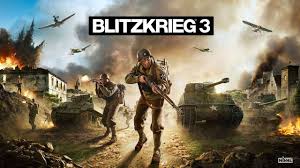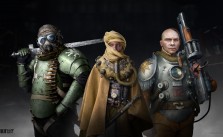War of Rights – Company Ranking Guide

Private: An enlisted man in the army who held the lowest rank. Privates are responsible for following orders and giving hell to the enemy. They were trained very hard in the sense that they would deal as much damage as possible towards the rebels. Consider them the testing dummy in all situations of combat. They go down before anybody else, because they’re the least of experienced men. However, they’re the backbone of any army!
Corporal: The duties of a corporal are simple. They are choosen upon for their leadership abilities. If anybody is going to lead a fireteam of 5 men, it’s gonna be them.
They take charge of the smaller details for fatigue and police duty in camp and garrison duty. They’re your “Corporal of the Guard” which means they’re choosen to lead a small unit. They frequently succeed in the responsibilities of sergeants in his absence, and should therefore be familiar with his duties.
Sergeant: One of the most iconic ranks in military history. The sergeant would lead by example towards his men and push them to their limits.
The sergeant was also in charge of a small section of soldiers called a platoon. He had the authority to shoot any who dared go against “his” orders or orders from a higher rank, even if his men showed cowardice he was allowed to shoot them.
Colour Sergeant (Honorary Role): The colour sergeant was responsible for holding and protecting the colours (flag of the nation). The colour sergeant would be looked upon to rally and inspire men during engagements. You’d be honored to have this role.
First Sergeant: The first sergeant is more experienced then a regulary sergeant. He had the same abilities as any other sergeant. He was even tougher on his men, and would love to shoot a man who presented cowardice. Don’t flee in a battle, is the one thing he taught his men.
Sergeant Major: Sergeant major has more control over a first sergeant. However, if they were absent it was a first sergeant who had to step up. A sergeant major.
Second Lieutenant: The second lieutenant typically command four squads if the first lieutenant was absent in the chain of command. The second lieutenant is often chosen carefully.
First Lieutenant: Also commanded four squads. If they’re absent, it’s the second lieutenants job. These men were quite experienced and trusted by their captains. A captain depends on his Lieutenant’s.
Captain: A captain lead a company. Every company has a captain or else it isn’t a company. He typically commanded two squads directly, and the rest was on his lieutenants. That is why lieutenants are in charge of four squads.
Major: When a colonel fell a major came into action to replace him. In the Civil War officers were falling constantly so there was always someone to replace the next man up. Otherwise there was no way to keep up with a gory battle!
Lieutenant Colonel: A lieutenant colonel leads the whole damn battalion. He probably has the most of experienced on a gory battlfield. As the leader of a battalion, he commands the regiments. Regiments are made up of companies. Lieutenant colonel’s have a lot on their back.
Colonel: The colonel commanded two companies directly. He could command any two companies in a regiment. He definitely had a say over his captains.
General: The general, leads the whole army. He tells the lieutenant colonel, and the colonel makes things happen.Nobody questions the general because he is the “god” of war.










